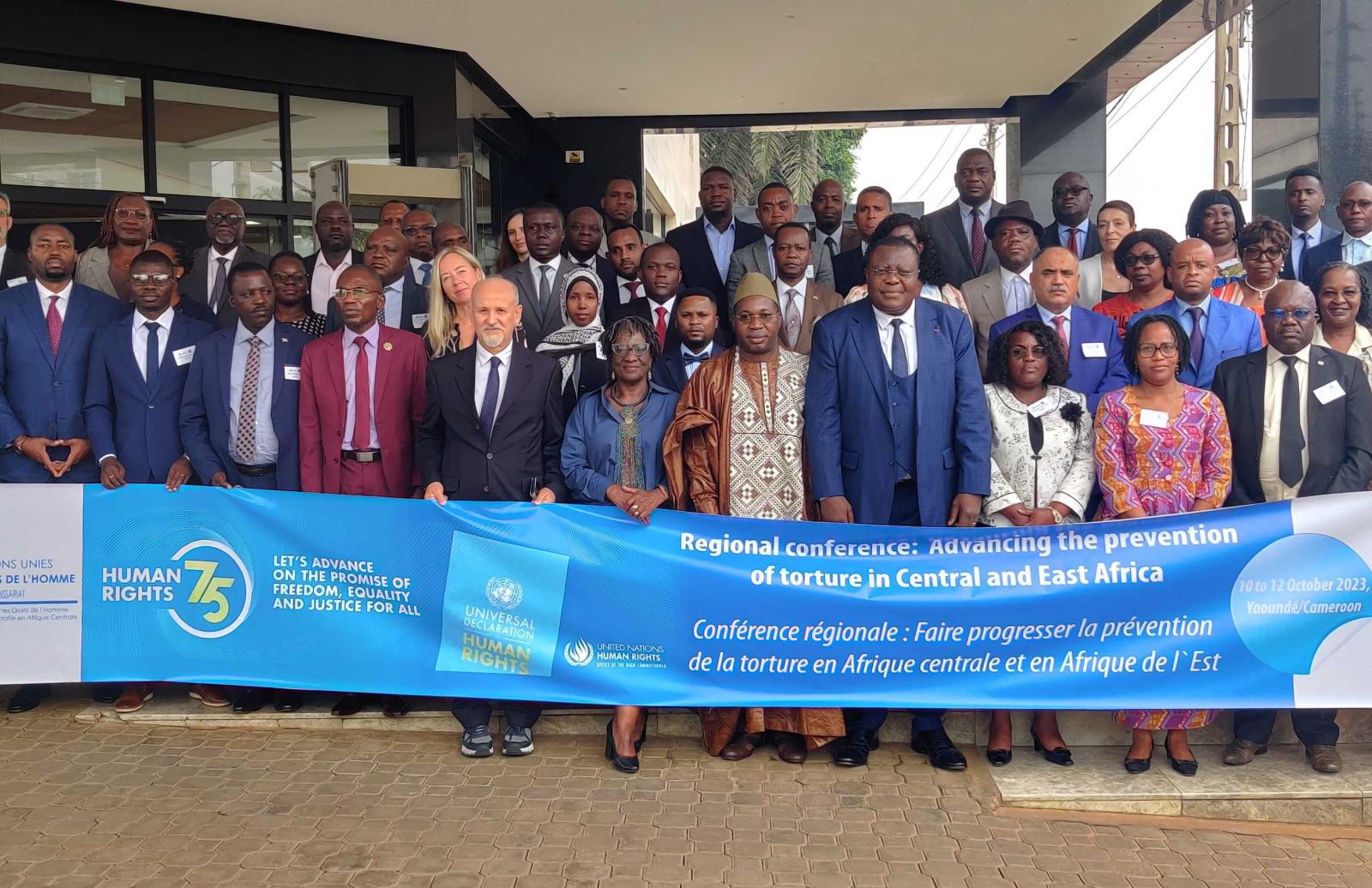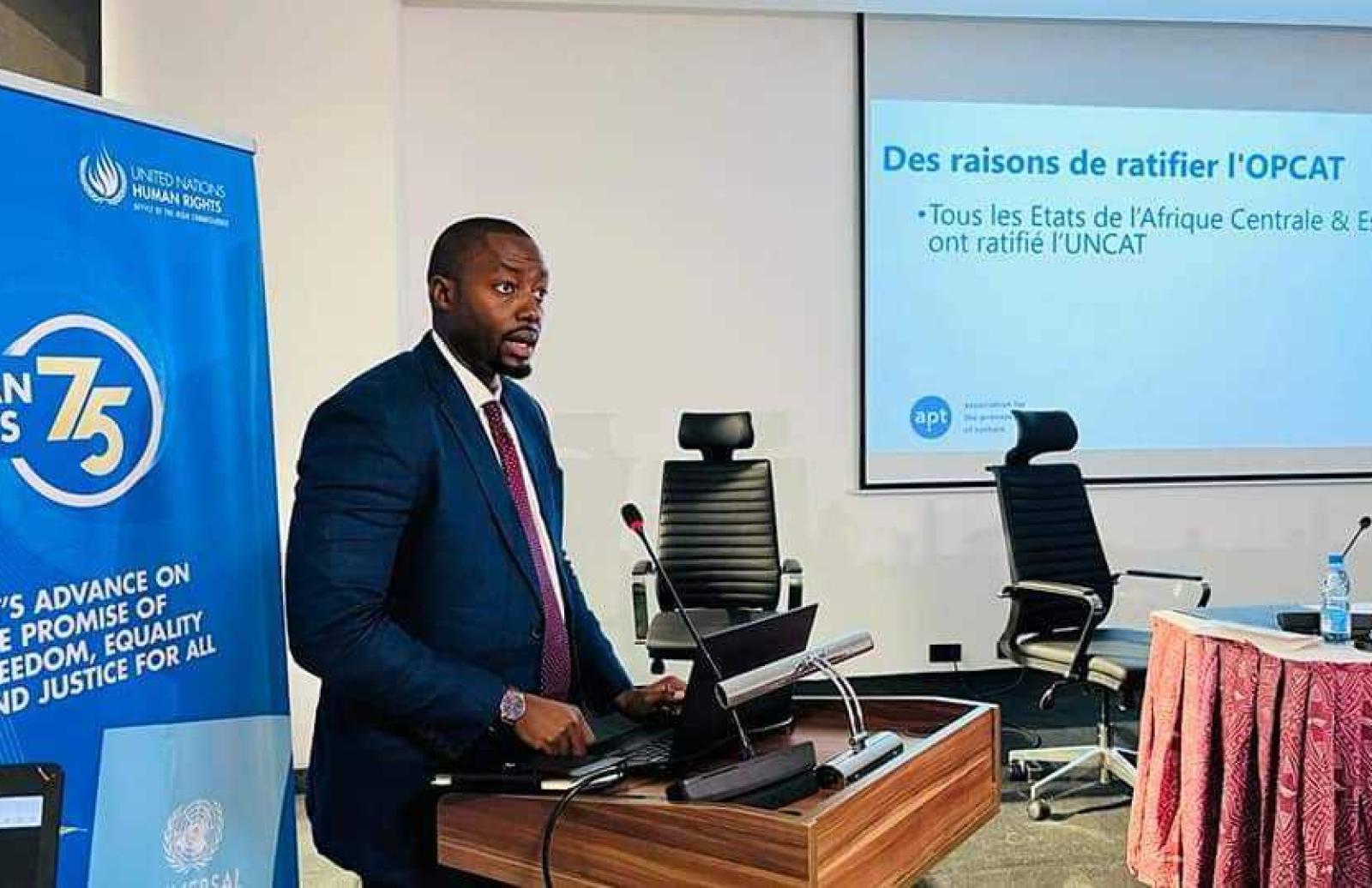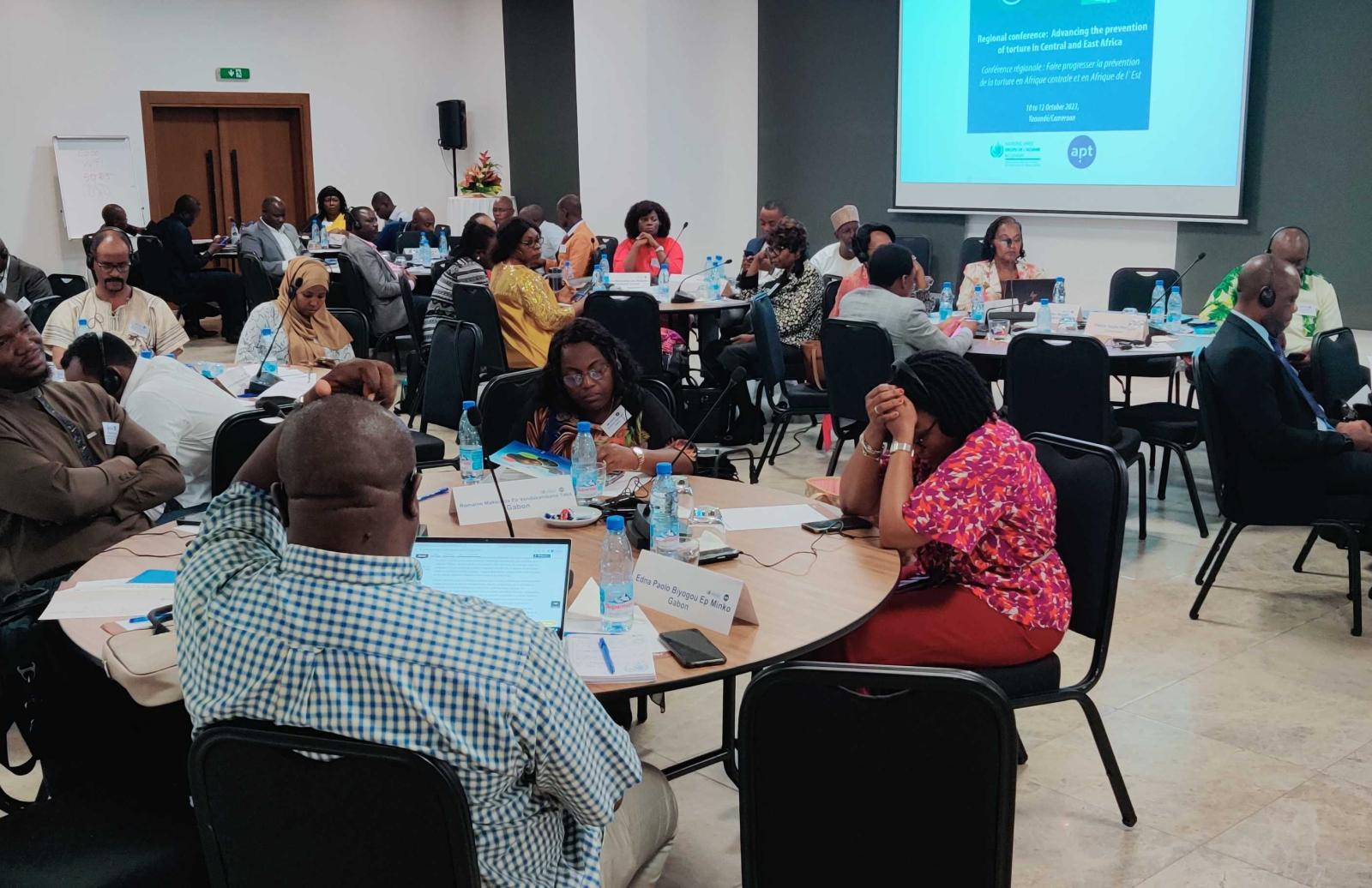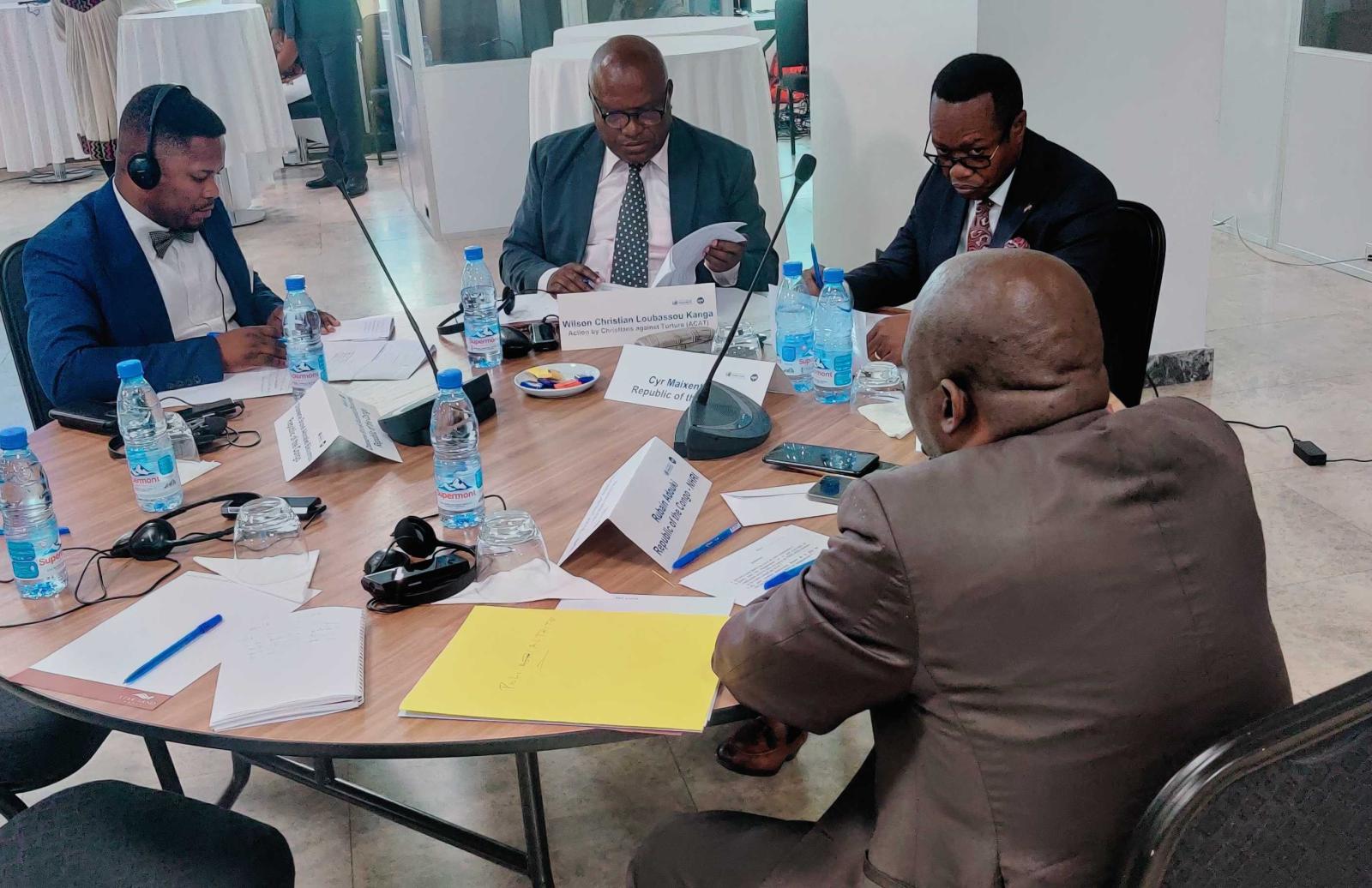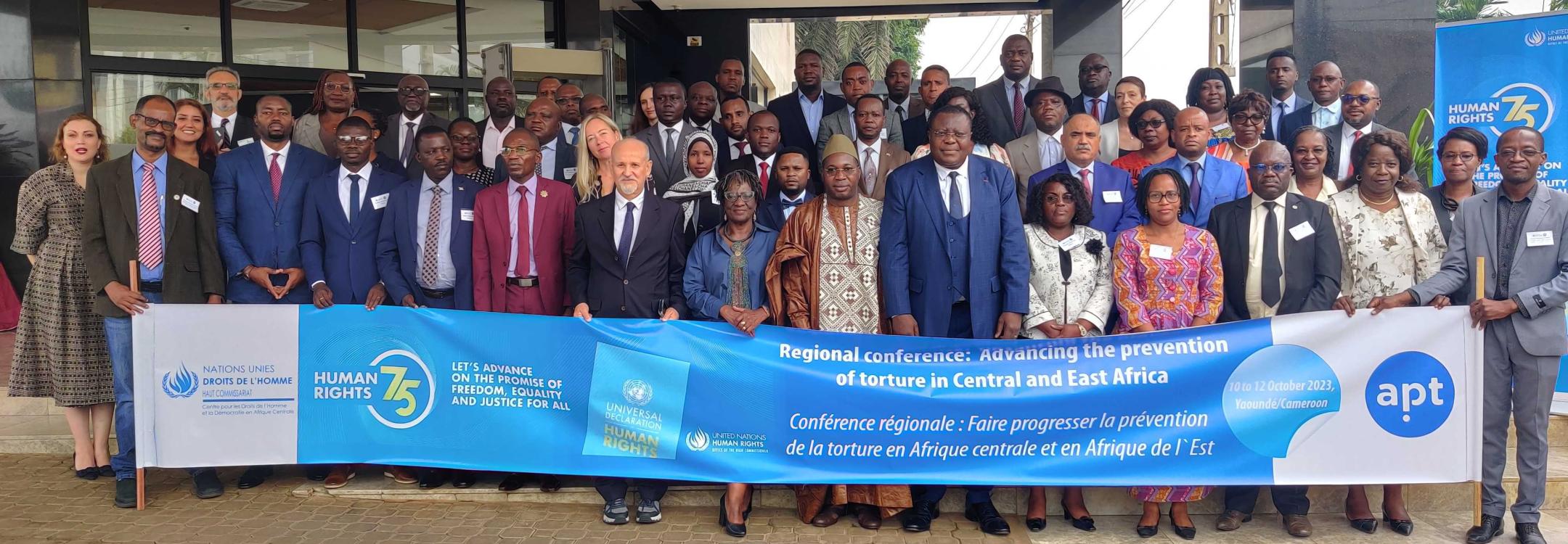
Delegates from countries across East and Central Africa have committed to ongoing collaboration for torture prevention at a major regional conference on the Optional Protocol to the Convention against Torture (OPCAT).
Attended by more than 60 representatives from 18 countries, the conference was an opportunity for States to share their experiences, challenges, and lessons learned on torture prevention.
While the UN Convention against Torture has been ratified by almost all African States (52), only 24 African States – with five from East and Central Africa – have ratified the OPCAT.
Organised by the UN Office of the High Commissioner for Human Rights, and supported by the APT, the three-day conference in Yaoundé, Cameroon sought to advance OPCAT ratification in the region, as part of a UN-led campaign during the 75th anniversary of the UN Declaration on Human Rights.
“OPCAT is more than just a piece of paper. It embodies a tangible reality that reinforces the protection of individuals deprived of liberty.”
Florence Simbiri Jaoko, APT Vice President
The importance of ratifying the OPCAT, designating national preventive mechanisms (NPMs), promoting their effective functioning, and cooperating with the UN Subcommittee on Prevention of Torture (SPT) were key topics of discussion.
Representatives from the NPMs of Senegal and Tunisia shared their experiences and the challenges NPMs can face, particularly during their initial stages. Building collaboration with national stakeholders, other NPMs and the SPT were essential for surmounting these challenges, they noted.
Country visits by the SPT were another important topic of discussion. Paola Biyogou, Head of Human Rights of the Ministry of Justice in Gabon, shared her experience regarding the first SPT visit to the country in 2013, stating that the government initially held concerns, but their perspective changed after the visit.
“The visit aided in diagnosing issues and identifying long-term solutions,” Ms Biyogou said, expressing her enthusiasm for an upcoming second SPT visit to Gabon.
The conference also helped clarify certain misconceptions about the OPCAT, such as the belief that prison conditions should be improved before ratification, or that ratification posed a challenge to State sovereignty.
Joao Nataf, representing the SPT Secretariat, emphasised the fundamental principles that underpin the OPCAT, including cooperation, confidentiality, impartiality, objectivity, non-selectivity, and universality. He also highlighted, for example, the necessity for a State to authorize that the SPT report is made public following a visit.
Delegates considered the conference a valuable learning experience and committed to advancing OPCAT ratification and implementation in their respective countries. They expressed appreciation for APT resources on the OPCAT, including the courses available online at the Torture Prevention Learning Village, as well as information and resources prepared by OHCHR.
Juvenal Babona, APT's Africa Representative, highlighted the important of bringing States together to share their experiences and promote progress for torture prevention.
“Following the last conference, organised for West African countries in January 2023, we were delighted to see Cote d'Ivoire ratify the OPCAT in March,” Mr Babona said.
"Conferences of this nature are powerful because they facilitate south-south exchanges, and it's vital to sustain this spirit. We are very grateful to OHCHR for organising this event and confident that there will be promising developments for East and Central Africa in the time ahead."
